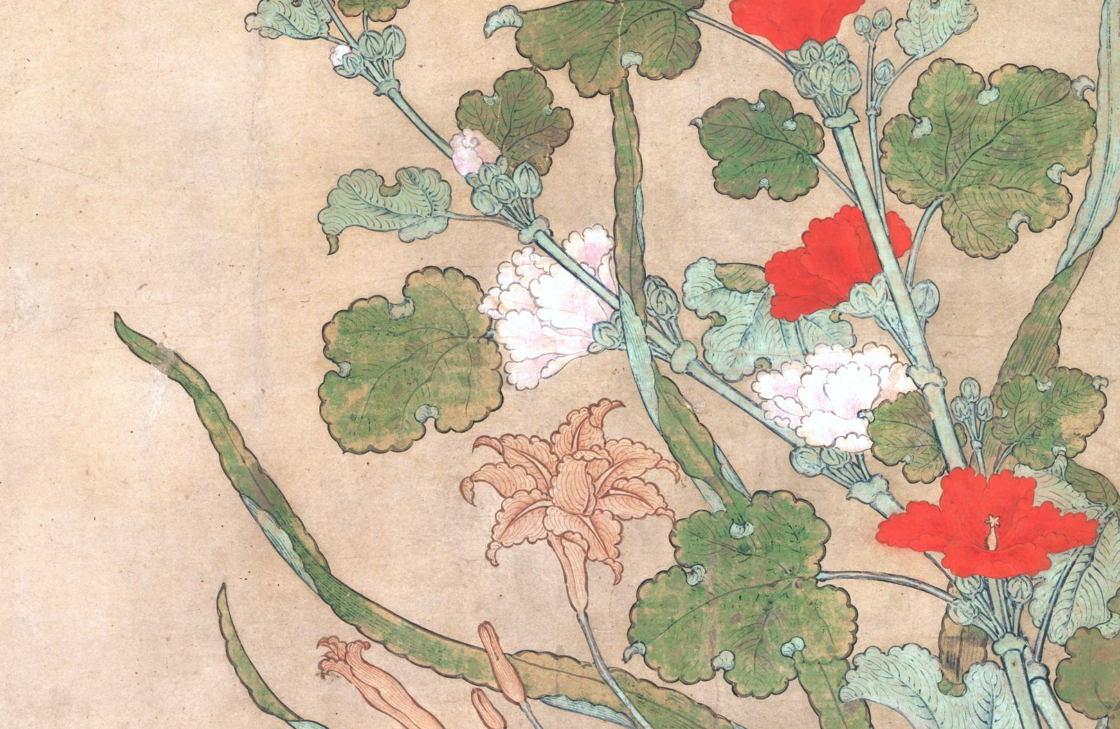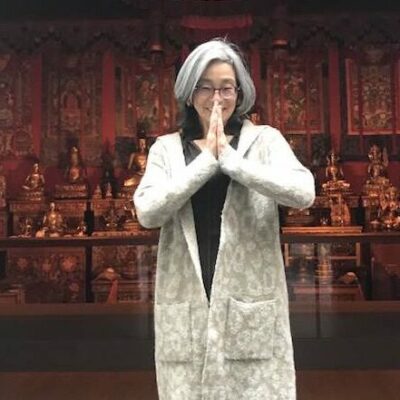Poems of All Sizes: Haiku, Tanka, and Japanese Poetic Forms
with Miho Kinnas

August 15, 2024
3 1-Day Workshops
Original price was: $245.00.$210.00Current price is: $210.00.
Zoom calls Thursdays 7-9pm Eastern
Original price was: $245.00.$210.00Current price is: $210.00.Enroll Now
The Japanese poetic form “tanka” has existed for over a thousand years. The tanka is the form of the Japanese national anthem and it birthed the haiku poetry. This workshop showcases many haiku, tanka and other poems written in or translated into English. We will take a walk down the path of Japanese history, punctuated with columns of short form poetry. We will inquire and unfold the workings of the tiny poetic space, making discoveries to enliven your own writing along the way.
Poetry keeps flowing. Tanka aesthetics have shifted in many directions over the years within the extreme limitation of 31 sounds (not syllables, a distinction we explore in the workshop). However, this number, and the similar restriction to 17 sounds for haiku, are not inviolable, as we shall see.
But first, we will learn the rules of these forms. Only then can we challenge the rules. Finally, you will reach for freedom in your own creative writing based on our conversations about Japanese poetry.
Linked poems or renga takes an important place in the history of Japanese literary tradition. We will learn the essence of good renga and we will see that understanding how the poems are linked well improves not only our basic haiku writing but also haibun and haiga/photo haiku.
Learning and Writing Goals
In these three workshops, participants will learn:
- The short poetic forms as categories: waka/tanka, haikai/haiku, renga/renku, senryu, kyoka, and others!
- The basic rules of sounds (syllables/on), and the use of kigo.
- An overview of the history of Japanese poetry forms, from 800 AD to the present.
- Haiku growing outside Japan.
- Compact expression: learning from American Haiku poets and translators.
- The range of subject matter, vocabulary expansion, and variations in tanka.
- Associations: Basho and contemporary tanka.
- Applications: Collaboration, hybrid forms.
We will write some short poems during the first session following prompts and a structural suggestion.
During the second and third workshops, we will write several more 3 and 2 line verses under various assumptions.
The participants are expected to write new works between the sessions.
A list of suggested submissions
- A sequence of 5 haiku (three-line poems).
- A sequence of 3 tanka (five-line poems).
- A free verse.
- A haibun with a haiku, and prose up to 150 words.
- A haiga (drawing or photograph) with a haiku.
- Linked Poems or Paired poems
Please place your work in the body of the email—please no attachments, except for the haiga. We will exchange emails after each session.
Workshop Schedule
These three workshops will run on Zoom for two hours each. Each call will run from 7-9 P.M. U.S. Eastern Time.
First Workshop (August 15)
- Introduction: understanding individual goals.
- Discussion of haiku as a form: its definition, variations, and transitions.
- (Basho and other masters, Haiku in America (modern, jazz, beats and more), Structures and Syllables of haiku.)
- Writing Exercise – learning from tanka practice.
- Q&A
- Writing suggestions.
Second Workshop (August 22)
- Sharing the highlights of individual writing and editing.
- Discussion on kigo (season word).
- Learning Exercises – learning from translators.
- History of Japan from the 8th to today through anthologies, crafts and attitudes toward poetry.
- Two Writing Exercises – learning and applying from the renga and maeku techniques.
- Q & A
- Writing suggestions.
Third Workshop (August 29)
- Sharing the highlights of individual writing and editing with Miho.
- Discussion: What do you do with all those short poems you have written?
- Examples of traditional and contemporary Haibun and Haiga
- or photo haiku.
- Writing Exercise. Haibun and Photo Haiku.
- Q&A
- Writing Suggestions.
Original price was: $245.00.$210.00Current price is: $210.00.Enroll Now
Student Feedback for Miho Kinnas:
Miho is awesome. She is wise in her teaching, knows the history of her poetry, and offers great feedback. Amy Smith
The explanation of form and the survey of how Japanese poetic forms have been written and interpreted was eye-opening. Miho is very perceptive. Verena Tay
As a teacher really enjoyed Ms. Kinnas’ constructive critiques of the haikus my students created about flowers. Her suggestion were insightful and useful. I appreciate her comments so much that we dedicated our ocean haikus students drafted at Creative Arts to present for BRAVO night 5/24/22. Michelle Howard
what is she like?
like moonlit snow – quiet
strong radiant presence
I was very fortunate to attend the workshop Miho Kinnas held during Shanghai Literary Festival at M on the Bund several years ago. It was a short, intense, warm, and greatly empowering workshop. Karolina Pawlik, Ph.D
I have had the pleasure of being a participant in Milo’s HAIKU classes at LIFELONG LEARNING and the PAT CONROY LITERARY CENTER in Beaufort County S.C. She is an interesting and exceptional teacher; skilled in the introduction of Japanese verse to audiences that are mostly unfamiliar with these poetic forms. Miho is a well regarded author of several books of HAIKU. She has participated in forums on the subject in the US and internationally. Most important is that her creative work is inspiring and of the highest quality – providing a sense of authenticity and enthusiasm to her innate teaching skills.” Norman Levy
I took a haiku class last winter through Lifelong Learning of Hilton Head Island. It was taught by Miho Kinnas. I have usually avoided haiku, but this class was delightful. Miho bent the rules and encouraged us to be creative in writing about a wide variety of experiences. We had a couple of elderly women in class who insisted they had no talent and couldn’t write their own haiku. Even they left the class with poems they were proud of. I loved her leadership. Miho is a marvelous teacher. Jim Riggs
Miho takes the mystery out of writing haiku while also creating a fun atmosphere. I came away from her workshop with new work that surprised me in the best possible way. Frances J. Pearce
August 15, 2024
3 1-Day Workshops
Original price was: $245.00.$210.00Current price is: $210.00.
Zoom calls Thursdays 7-9pm Eastern
Original price was: $245.00.$210.00Current price is: $210.00.Enroll Now

